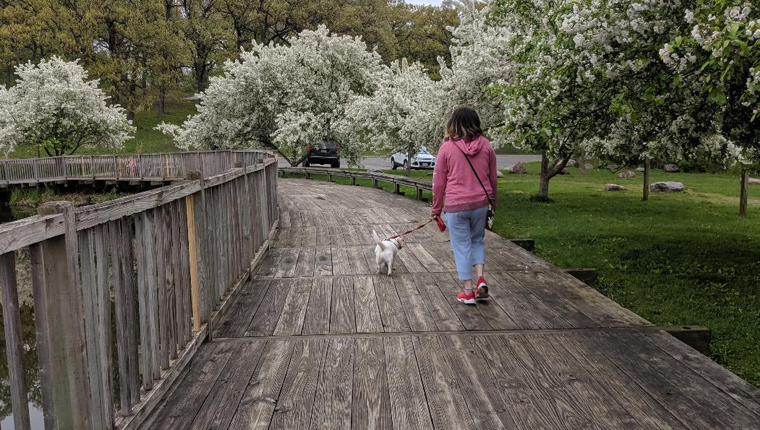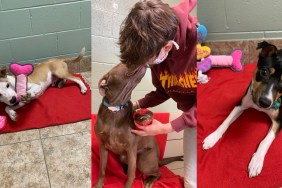
It’s official. Humans benefit from companion animals on so many levels. We are happier, healthier, more confident, and less isolated people, thanks to our pups, kitties, and other furry friends. You probably already knew that, but now–thanks to the Human Animal Bond Research Institute–science backs it up!
Social isolation can impact our health by increasing our chances of getting heart disease, dementia, and depression. According to recent research, loneliness is as deadly as smoking 15 cigarettes a day. Just writing that made me have to reach out to pet my dogs!
The Human Animal Bond Research Institute (HABRI), along with Mars Petcare, has been doing research on loneliness and how many Americans are affected each year by social isolation.
These organizations, along with a few others, had a great big summit in Washington DC recently to discuss the science behind social isolation and the barriers to pet ownership, as well as solutions to these problems.
I was able to talk to Steve Feldman, the executive director of HABRI, to discuss some of these topics.
What Is The Human Animal Bond Research Institute?
I can’t recall ever not having a pet in my home, so it’s really tough for me to imagine what it would be like to come home to a quiet house. No wagging tails. No brushes against your legs to greet you. It sounds quite lonely to me.
I wanted to know more about HABRI and their role in studying the ways human interactions with pets can reduce loneliness in our lives.
JULIA: Tell me a bit about HABRI and what you do.
STEVE FELDMAN: The Human Animal Bond Research Institute is a non-profit, scientific and educational organization. Our mission is to study the various health benefits of having companion animals in our lives.
We fund scientific research, and then we share it. We try to educate people and sometimes even advocate for policies that make it easier for people to benefit from the human animal bond.
JULIA: What made you want get involved with HABRI?
STEVE FELDMAN: I think this organization has the coolest mission. Many of us pet lovers–we all instinctively know how great our pets make us feel. But to put science behind that feeling takes it to a whole new level.
We know that pets are good for us, and it’s backed by science! It strengthens our relationships with our pets. It enables us to benefit from having them in our lives.
HABRI Puts Science Behind Our Love For Pets
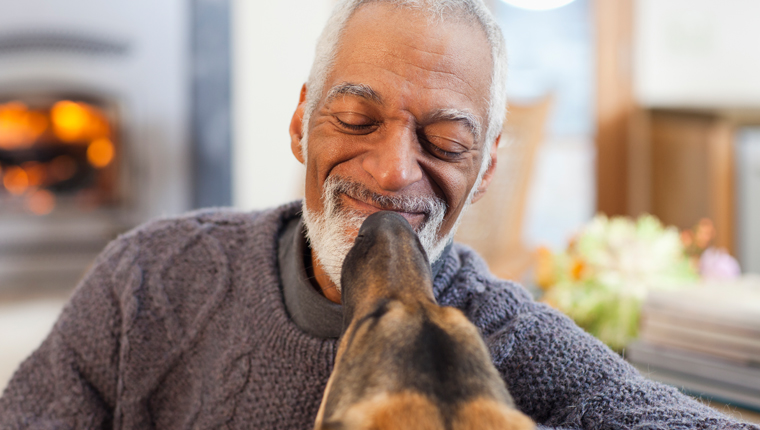
It’s good to know that HABRI is using studies to support what we pet owners have known all along–that pets make us feel less lonely.
I think pet lovers like seeing this type of stuff in print. It gives us hope for the animals in shelters that we can’t bring home ourselves and hope that a loving family or person will open their home and welcome them in. Maybe these studies will help us encourage adoption.
I wanted to know more about HABRI’s research on loneliness and how it affects people.
JULIA: How does loneliness negatively affect people?
STEVE FELDMAN: Loneliness is one of those root causes for so many problems in society. When people are isolated, lonely, and cut off from family, friends, and neighbors, that has an impact on individual mental health.
It has an impact on the cohesiveness of neighborhoods and communities, and it makes it harder for us, as a society, to find common ground.
The opposite of that is when we have a connected life–when we have friends and family and community and neighbors who we can connect with–that makes for a happier, healthier society. It turns out that having companion animals is a way for people to be more connected–a way for us to overcome loneliness and social isolation.
It’s also particularly helpful for the vulnerable population–older Americans, people with disabilities, people with mental health challenges. Pets and human-animal interactions–we are looking to take the research to the next level and to really show how this simple intervention of having animals is an important piece to the puzzle.
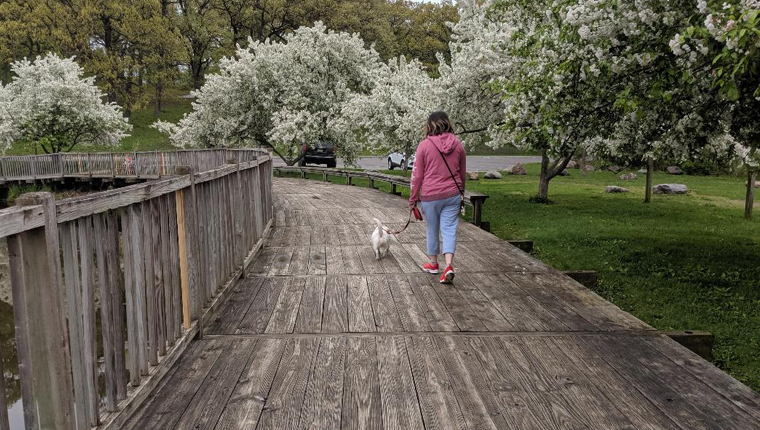
JULIA: How does social isolation affect young people? Are kids hurt by loneliness?
STEVE FELDMAN: Let’s talk about children and young people. There’s a lot of talk about smart phones and social medial and lack of in-person connection. Pets provide that authentic, in-person experience.
You can’t touch fur through your cell phone. Pets are non-judgmental. They will listen to you all day without passing judgment or criticizing.
They are always an outlet for young people to express themselves and, for very young children, pets are a great way to practice reading since they’ll listen the whole time. You can read the same book over and over again. They won’t mind.
Pets are social connectors. There have been scientific studies that show when people are out in their neighborhood with their pets, they are meeting their neighbors. They are more likely to form friendships with the people in their neighborhood and more likely to do favors for each other.
Your friends become your social support network. I’ll watch your dog when you’re out of town, and you watch mine. And this is how neighborhoods become more connected. This is also true for kids, since they are on the phone so often, they don’t know how to interact.
You Can Help Others Find The Right Pets And Fight Loneliness
I’ve had days where I wouldn’t have stepped a single foot out the door if I didn’t have to give my pups potty breaks. They definitely have helped me to get moving, even when I wasn’t in the mood.
Raising two kids, we’ve always had dogs. I’ve seen so many benefits to having pets, especially when kids feel sad or lonely. I also believe that animals play a huge roll with kids in learning about compassion.
But not everyone has a pet–and not everyone even can have a pet. How can we help those people? I wanted to know more about some of the barriers to pet ownership and how we, as dog lovers, might be able to help.
JULIA: What are some pet ownership barriers?
STEVE FELDMAN: First thing we need to do is to make sure people have the tools to decide if a pet is right for them, to select the right pet, to make sure they have the resources and knowledge to properly care for that pet, and to make sure that they have a vet.
We want to prepare them for all of that, so that falls under the mantra of “we want to encourage responsible pet ownership.” It all starts with selecting the right pet and making sure you are prepared to care for them, so that’s the first thing.
We want to make sure that the person benefits from that relationship, but to also make sure that it’s a good situation for the pet.
JULIA: Is there anything we as dog lovers can do to help?
STEVE FELDMAN: The first thing I would say to pet owners is to make sure that your pet is well behaved. If we are going to welcome more pets into our communities we need to make sure that the pets we do have make a good impression on our neighbors, and we also want to advocate for pet-friendly communities.
We want to make sure that there are sidewalks and dog parks and all the things we need to do to make it safe and fun to have a pet in our community. Also, that has to do with making sure that landlords are educated so that they welcome pets.
With millennials and baby boomers kind of wanting to live in the urban core, the baby boomers are downsizing, and the millennials are wanting to be in the city. There’s sometimes a shortage of pet-friendly housing.
We want to encourage pet-friendly rental housing. We want to encourage businesses to be pet friendly when it’s appropriate and to welcome pets. So if we are going to encourage society to be more pet friendly, we need to be great, responsible pet owners, and then it will work well from both sides.
HABRI’s Words Of Wisdom

It sounds like HABRI has some good advice. As Mr. Feldman mentioned, we need to encourage not just pet ownership, but responsible pet ownership. Absolutely, pets require trips to the vet, vaccinations, teeth cleanings, and more. They are way cheaper than kids, but being a good pet parent will include proper care.
We also need to set a good example for our communities if we’re going to encourage responsible dog ownership and help fight loneliness.
So, pet parents, make sure your pup is not jumping on people. Always use a leash and don’t forget to pick up after your pooch. As a “thank you” to my neighbors, if my dog uses their lawn for a number two, I make a point of picking up any extra dog business that I see laying around.
With all of that in mind, I wanted to know if HABRI had any more wisdom to share or tools for dog lovers to use as we encourage others to adopt shelter pets.
JULIA: Is there anything else you’d like our readers in the pet owner community to know?
STEVE FELDMAN: Yes! Our research is not done. We are still working to document many of the benefits of pet ownership. There’s a lot out there already. We are actually in a partnership with Purdue University.
We’ve created HABRI Central. HABRI Central is now the world’s largest online library of human animal interaction science. It’s all keyword searchable. So if people want to know what’s out there, they can go to habricentral.org and search the science.
HABRI is still in the process of funding research and studying this topic. We just partnered with Mars Petcare to host the first ever summit on social isolation and companion animals, and I want to note that Mars Petcare is also funding research in a partnership with the National Institutes of Health so HABRI is not the only one out there doing it.
Actually Mars and NIH has this great partnership to fund research, so you may not have heard about this area, but there is a tremendous amount of activity, and we are gonna gather even stronger evidence in the future to show how pets can make a positive impact!
Connect To HABRI And Support Their Mission
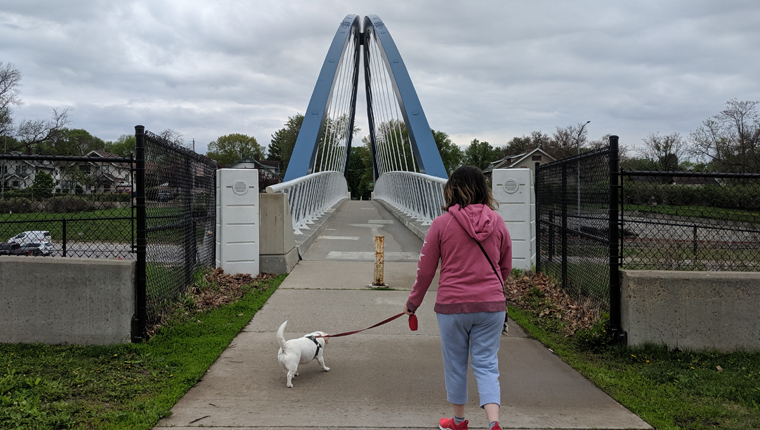
HABRI is committed to supporting scientific research to substantiate what many of us know to be true–that humans and pets share a special, mutually-beneficial connection.
They are on a mission to keep gathering data on what a positive difference animals make in our lives. That is music to my ears. Nothing would give me greater joy than to see animal shelters empty.
Check out some of their pages on social media!
What are your thoughts on the research regarding social isolation and companion animals? I sure hope HABRI’s research shows lonely people and families with children the benefits they could have by adopting an animal in need, don’t you? Let us know in the comments below!
Related Articles:
No-Kill, Non-Profit, All Hero Sanctuary: Meet Jameson Animal Rescue Ranch
